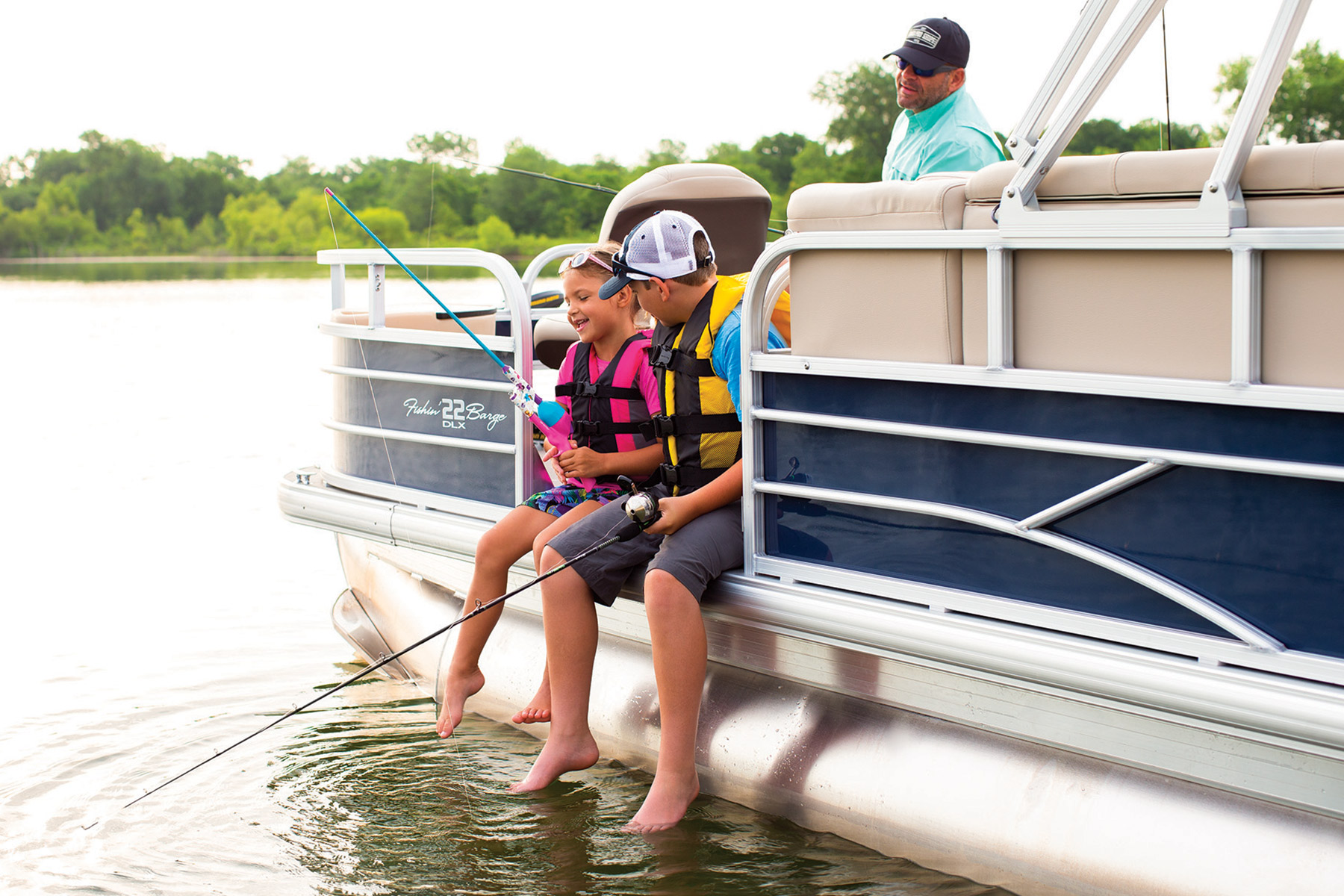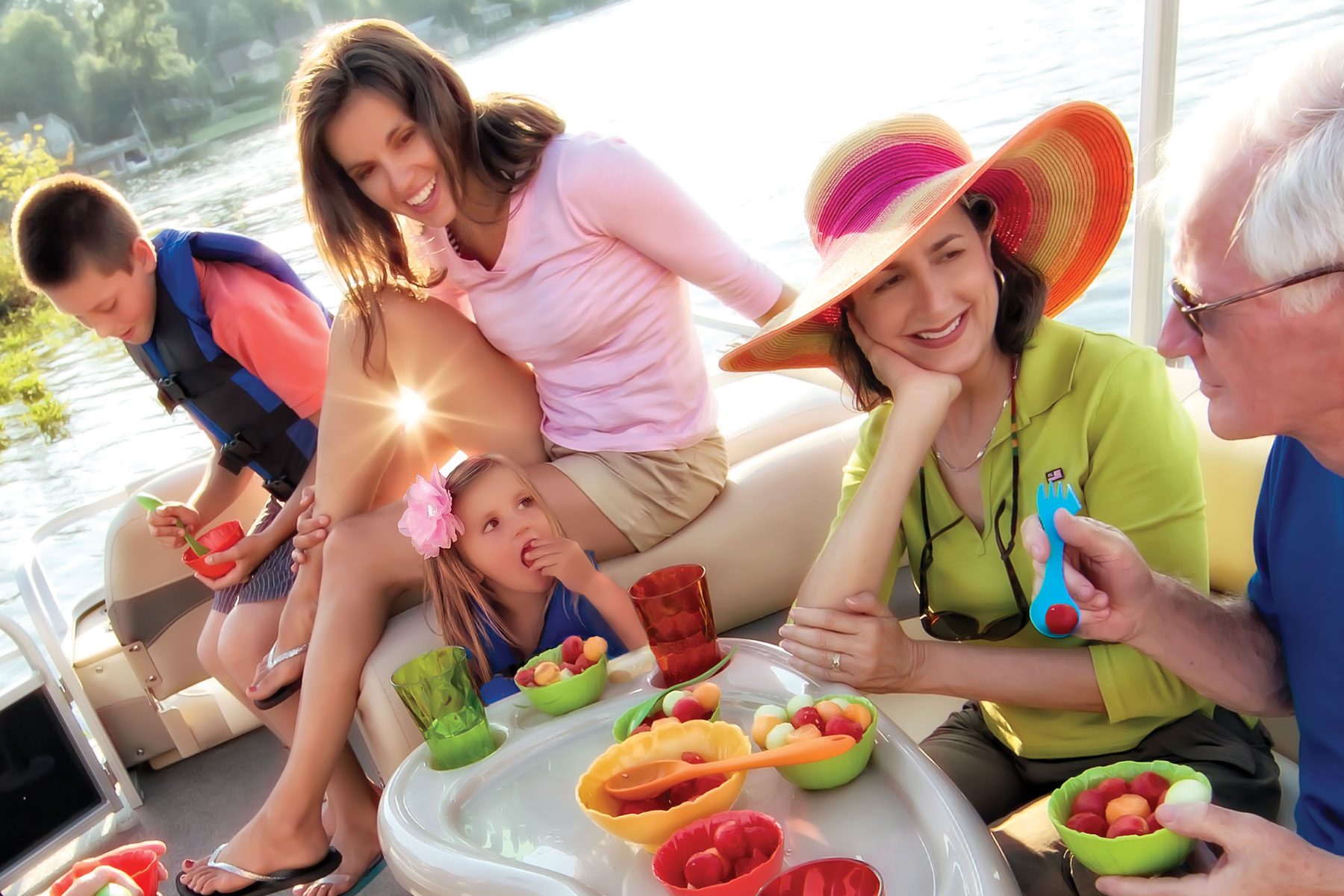Accidents happen, even on the water. That is why boaters should be prepared with what to do should someone onboard—or on another vessel—need medical help. Knowledge, quick action and proper treatment can slow down an injury before it worsens.
Use our list as a guide for treating and preventing injuries in the boating environment. It’s not intended to replace the professional medical advice or treatment.
Do not attempt to remove an imbedded hook that is in or near an eye, in a joint, bone or deep in a muscle. If the hook is not deeply embedded, the string-pull method may be used.
- For treble hooks, cut all exposed barbs to prevent further injury.
- Tie a short length of fishing line to the hook where it entered the skin.
- Next, hold the hook with your fingers placed slightly above where you tied the line.
- Press down gently to loosen the barb. While still pressing the hook down, use the other hand to jerk the string so the hook shaft pulls the barb from the skin.
- Clean and bandage the wound.
Some species, such as catfish, have poisonous barbs and fins. Even those that don’t can cause pain, although that’s the least of the problem. The true enemy is infection. The sooner the wound is cleaned and irrigated, the less likely it will become secondarily infected.
- Immerse the affected area in water as hot as tolerable to relieve pain.
- Remove any spines with tweezers.
- Irrigate the wound with sterile (bottled) water.
- Use hydrogen peroxide or medical alcohol if bottled water is unavailable.
- Do not cover the wound!
Getting on firm ground is the best cure when seasickness strikes. There are ways to prevent it from happening, though, some dating back to the days of the ancient mariners. For modern times, here are three proven preventatives that work with varying effectiveness, if they are done right.
- Dramamine – This antihistamine is really a sedative that has a calming effect on the central nervous system. Just don’t take it as you are leaving the dock. Take a dose the night before, sleep off the drowsiness and take another round on the morning of your trip.
- ReliefBand – This battery-operated device that looks like a wristwatch has two electrodes that electrically stimulate the median nerve, which sends signals to your stomach to calm down. It’ll set you back about a hundred bucks, but has a proven track record.
- Lavender oil – Proponents rub lavender oil on the neck, chest, abdomen and behind the ears. The belief is the oil relaxes the body and soothes the nerves.
You’ll feel it coming on within a few hours of overexposure. Pain, swelling, reddening skin and blisters are the signs of sunburn. For relief, take these steps.
- Cool the skin with a clean wet towel or take a cool bath.
- Apply a moisturizer, lotion or gel like aloe vera.
- Apply hydrocortisone cream to the affected area.
- Drink water to prevent dehydration.
- Take ibuprofen for pain relief.
The best quick response for serious bleeding is applying pressure to the wound.
- Apply direct pressure to the wound with a sterile gauze pad as a first step. Only use a tourniquet as a final measure to stop the bleeding if direct pressure is ineffective.
- Elevate the affected body part to slow down the flow of blood.
- Only apply a manufactured tourniquet for life-threatening bleeding. Apply 2-3 inches above the wound (closer to the torso).
- Activate the emergency medical system by calling for help on a VHF radio or mobile phone.
If someone takes a spill and is unable to get back on their feet, or there is obvious sign of a broken bone, follow these steps.
- Encourage the person to support the injury with their hand, or use a cushion or clothing item to prevent unnecessary movement.
- Do not attempt to reset the bone.
- Take it slow on the throttle until you reach the dock.
You should keep a first aid kit on the boat, but not just any will do. Household first aid kits fall short of having the supplies needed for accidents on the water. Marine medical kits contain supplies geared toward boating scenarios. The My Medic Boat Medic fits the bill. It’s a bit pricey at $200, but the kit is well stocked in quantity and quality of supplies. My Medic has more budget friendly kits as well.
If you want to be prepared for most anything that might happen during your boating adventures, then consider taking a professionally taught course. The American Red Cross offers a combination of first aid online and classroom courses in your area. The takeaway about this idea is you can call 911 from the water, but how long will it take for first responders to arrive at your location? What is more, combination first aid and CPR classes make you ideally prepared for drowning and cardiac emergencies. Find out more at redcross.org.


